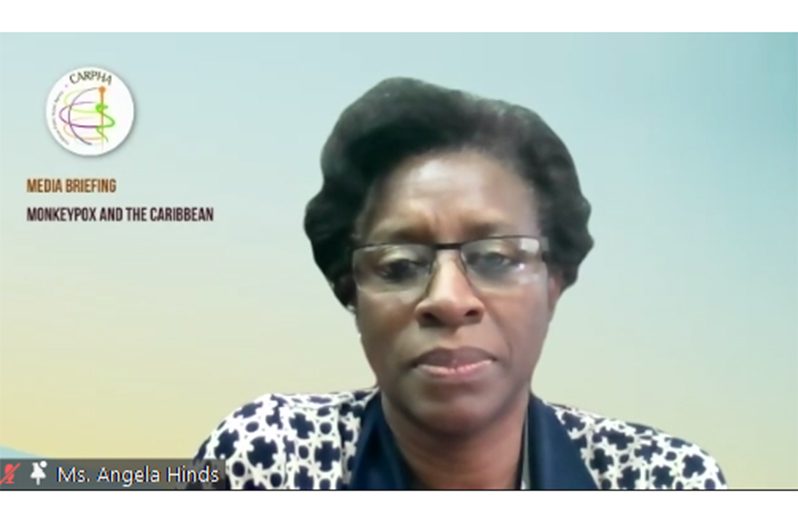WITH many countries around the world on high alert for the monkeypox virus which has sparked a global health emergency, nine cases have been confirmed thus far in Caribbean countries.
This was revealed on Wednesday by Angela Hinds, the Head of Health Information, Communicable Diseases, and Emergency Response at the Caribbean Public Health Agency (CARPHA) during a virtual media briefing.
“In our Caribbean countries, we have confirmed, to date, nine cases… [in the] Bahamas, Barbados, Bermuda, Dominican Republic, Jamaica, and Martinique.
“These cases have been persons who have had a history of travel and, of course, to date there have been no deaths,” Hinds said.
CARPHA began testing for monkeypox in late June. It was noted that CARPHA’s Medical Microbiology Laboratory has the capacity to do confirmatory testing for monkeypox.
As such, the current quota for tests stands at 100 tests per CARPHA member state per week with a turnaround time of 48 to 72 hours.
The sample currently required to be tested is a swab of fluid from lesions of potential patients.
Hinds noted that the World Health Organization (WHO) declared monkeypox a public health emergency of international concern as the disease is not endemic to many of the countries in which it is spreading.
This declaration, she said, proves that to tackle the virus, a co-ordinated international response is needed which will facilitate the rapid mobilization of resources, streamline funding, and accelerate and advance the development of vaccines and other treatment regimens that are needed.
As it relates to the transmission of monkeypox, Hinds noted that what has been seen as the main method of transmission is prolonged physical contact with someone who has symptoms. These symptoms include rashes or skin lesions and bodily fluids.
She noted that there are many ways that the disease can be contracted even as it was revealed that the routes of transmission are the face, skin, and mouth.
In relation to treatment for monkeypox, Hinds revealed that there is data to show that the smallpox vaccine is at least 85 per cent effective in preventing monkeypox.
However, as it relates to the procurement of specific monkeypox vaccines, health services are stretched in this regard. It was noted there are cost implications as the vaccines are costly and in limited supply worldwide.
Hinds said the WHO’s risk assessment considers the risk to be moderate at the global level. In all six regions, it is considered to be moderate with the exception of Europe where that region has been elevated to high risk since there is a larger amount of cases there.
To this end, while noting that communities should be on alert, Hinds said people should learn more about how monkeypox is affecting their communities and how the disease can be contracted so as to be able to make informed decisions.
“We want persons to be alert and aware of the virus and its possible circulation not to be in fear,” she added.



.jpg)








